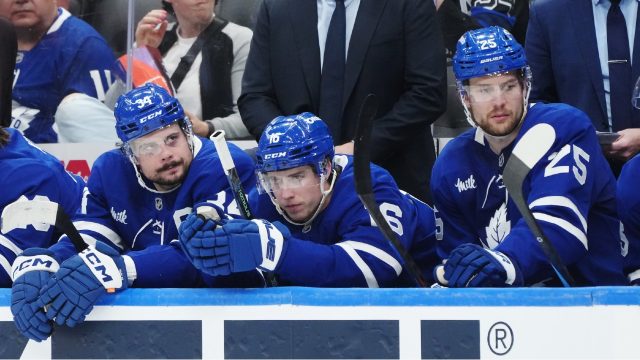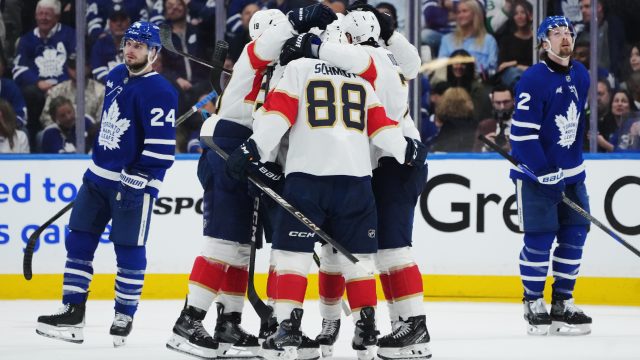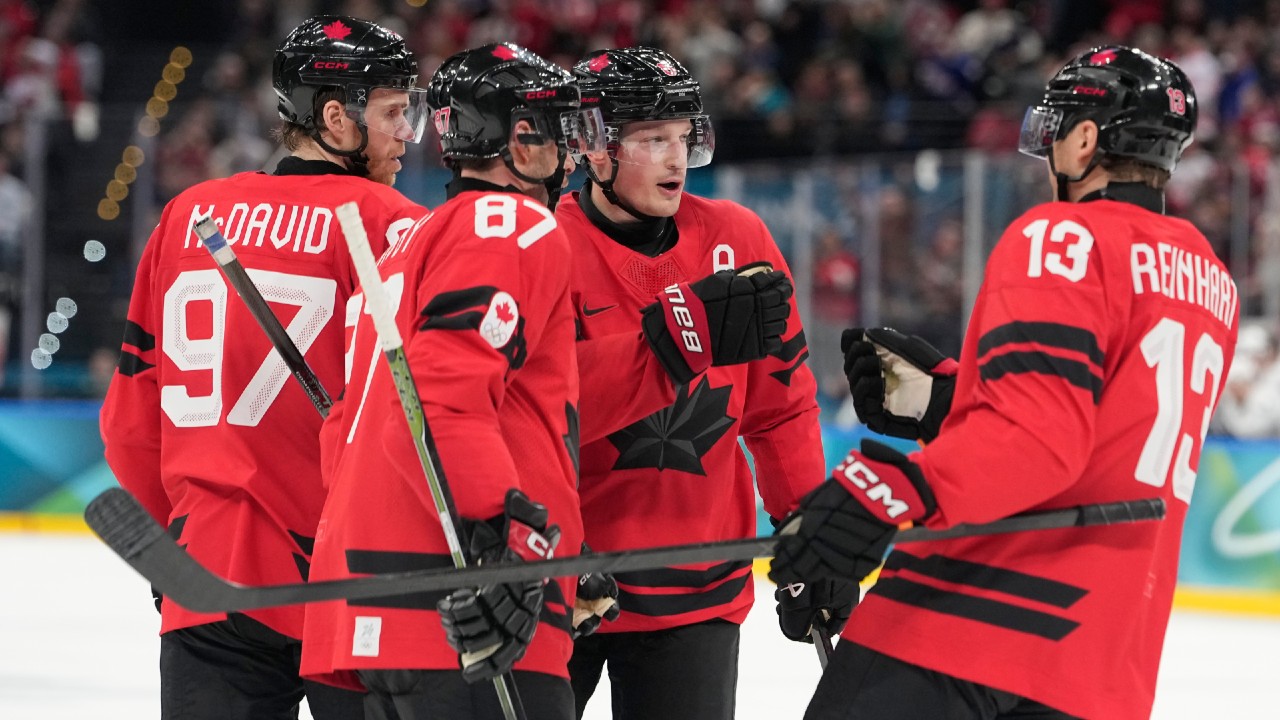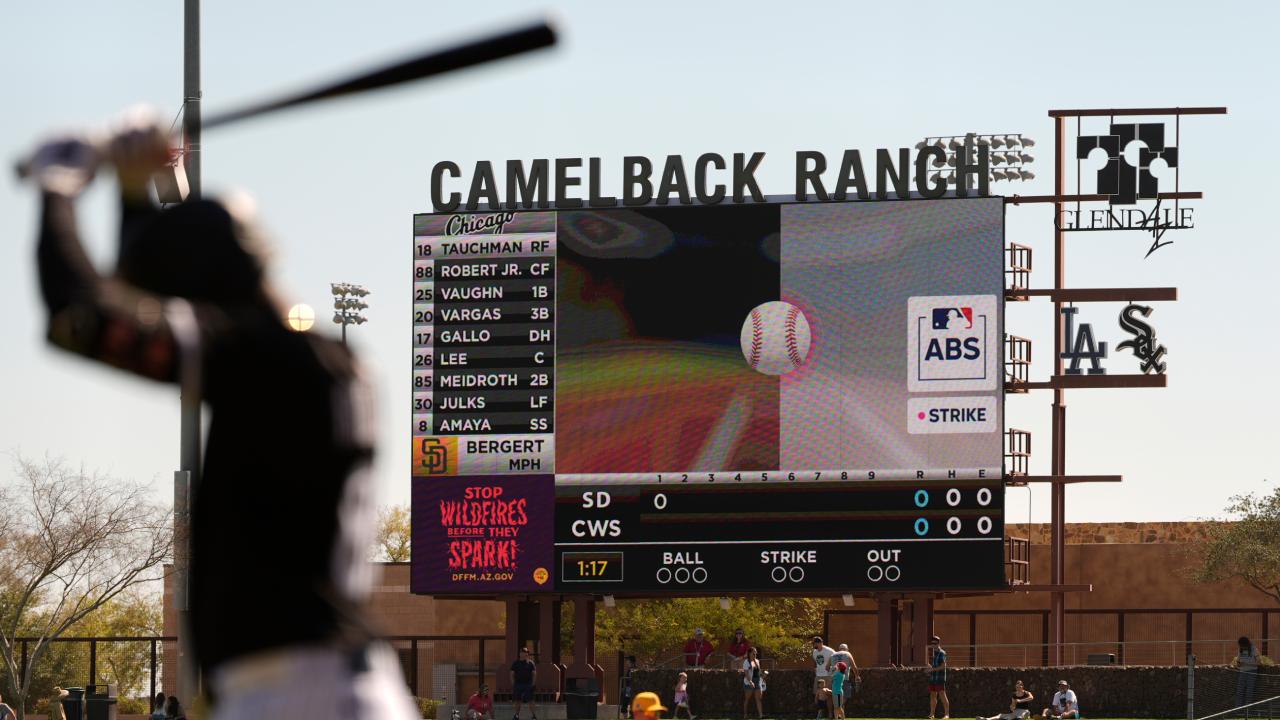
Because sporting greatness is a conspicuous thing revealed by the movements and actions of the world’s most gifted, we’ve become adept at describing its poetry. These athletes are powerful, they’re dynamic, they’re transcendent.
It’s a much greater challenge to describe the absence of greatness because greatness is not to be assumed, and it isn’t to be expected. When it isn’t there, and we watch professional athletes be good, or average, or worse, it doesn’t inspire much comment. Describing the absence of greatness is akin to describing the absence of smell, and “It doesn’t smell like anything in here” is a borderline deranged statement. In both cases we just expect things to be at a baseline, so we hold our comments for outliers.
But when you win the Hart Trophy and are in the prime of your career as one of the league’s top earners, you’d excuse observers for expecting some greatness. When you make $11 million a year and hold off on signing a contract for a dollar amount more commensurate with the league’s very greatest players, again, fans can be excused for being surprised when a sliver of greatness doesn’t manifest.
With Auston Matthews and Mitch Marner, this “absence of greatness in big games” thing hangs like a void, a black hole that gobbles up every other story, narrative and concern that may float about the perimeter of the Toronto Maple Leafs. It’s tough for fans and analysts alike to point to many specific moments and say, “Here’s what you should have done different,” because like a brilliant composer, these players are supposed to be the ones who see the music before anyone else gets to hear it.
We don’t know, you’re the supposed great.
The Florida Panthers are an extremely good playoff hockey club. They’re built for it. They’re lab-grown for the extra physicality, the prolonged nose-to-nose “eff you,” and sure, the cheap stuff. But the guys they have who can play with that snot in their game can also make passes and score and don’t just sit on the bench waiting for the chance to make dirty plays. They’re bona fide hockey players.
With those attributes, the Panthers demand a lot from their opponents, and most often in the playoffs, the other team hasn’t had an answer. So for Matthews and Marner, you could see a world where succumbing to a great opponent could be hand-waved away rather than considered some career crisis.
The problem is that there’s more to their career stories than this series. Their history of making guys like Philip Danault and Jonas Korpisalo look like Esa Tikkanen and Dominik Hasek has cost them any benefit of the doubt.
It’s not that these two have been outright bad, of course. Yes, you can say they were bad-bad in the last game or two, but prior to that, the bulk of the narrative around them was “They may not be scoring, but boy, are they doing the little things right.” The underlying numbers liked them, opposing top players weren’t doing great, and so you could say the two were contributing to winning.
But even then, there was the rancid Game 5 in Round 1, with the chance to put an opponent away, where they couldn’t muster a push. There was Game 4 in Florida, where tight defence called for a superhero moment, but it seemed they left their tights in the phone booth. And this past Game 5 was as bad as it can get, to where that aforementioned absence of greatness has become a smell worth commenting on.
I’ve watched hockey every single night for the past month, and what you see in just about every post-season game is the best players having capital ‘M’ Moments, particularly for teams who are approaching a dozen games played. It’s Mikko Rantanen taking over critical games while Nathan MacKinnon pours it on the other way; it’s Connor McDavid flying down the wing and creating space for his linemates; it’s Leon Draisaitl powering a line while flanked by fringe roster players.
They seem hungry.
Each post-season, it has seemed as though I’ve been left trying to figure out how to pin down the feeling with Matthews and Marner, and I get stuck on the dressing room parlance that what we see is … “they’re just not dawgs.” I know I’ve written that about them before, but honestly, it’s where my dumbo former-athlete brain leads me.
Hockey is, at the end of the day, a “through” not “around” sport. Yet all season long, we see them have individual success without going directly through. We don’t see them physically engage their opponents, they never get caught up in any shenanigans. They just make great plays, rack up points and the team earns those commensurate wins, to the point where you have to acknowledge that they’re truly great talents.
The Stanley Cup Playoffs ask more of you than that.
-

-
Real Kyper and Bourne
Nick Kypreos and Justin Bourne talk all things hockey with some of the biggest names in the game. Watch live every weekday on Sportsnet and Sportsnet+ — or listen live on Sportsnet 590 The FAN — from 4 p.m. to 6 p.m. ET.
How any grown man can play a contact sport for 82 games a year and never get mad blows my mind. I think my family would tell you that I’m a fairly even-tempered guy, but a few times a year, as a player, I’d have some sort of meltdown related to being angry at some opponent, or frustrated at a lack of success, or whatever. That these two can go the whole season and just kind of shrug off both the good and the bad makes me feel like that fire doesn’t burn in there the same way those watching want it to.
These ideas are where we’re left when they haven’t given us the big moments that help us explain their greatness. In reality, “not a dawg” and “maybe there’s something else going on with them” are the kindest possible theories, as the others involve fear or not being able to handle pressure, which would be troublesome traits for pro athletes.
By now I think it’s reasonable that we cut William Nylander out of this conversation, not because of points, but because in all these games where Matthews and Marner go dark, the vibe is “Will Nylander score or will they get shut out?” because he’s their only star in their prime with some offensive push. John Tavares has five goals in 11 playoff games this year, and at this point in his career, there’s less expectation for him to be a primary driver, though he’s battled like hell and been effective. We’ve done the “Core Four” talk for years, but they shouldn’t all get painted with the same brush. It’s really down to the two.
To snap this thing back to reality, the Leafs haven’t even been eliminated from the playoffs yet. There’s no doubt in my mind that Toronto could go into Florida and win Game 6, because I like a lot of the way the team is built. On a good day, their defence is tough to create chances against, they have two good goalies, and with a couple fortuitous bounces we know these very same guys I’m talking about could take advantage of a few chances. It’s hard to see them beating Florida twice, but this article isn’t here to write the Leafs off just yet.
Maybe this moment becomes the turning point in their careers, and they “dig in” the way we all saw McDavid yell at his Oilers teammates in last year’s Stanley Cup Final.
Maybe.
But right now it’s clear that, in the big moments, when it is time to go nose-to-nose and say your best against my best, no-gloves-no-rules hockey, Matthews and Marner aren’t able to be in command of big games. They can’t summon a dominant level against a truly great playoff team on command.
This is the prime of their careers. They want to be considered among the game’s best and, physically speaking, they’ll never be better than this, at these ages. And unfortunately, they’re running out of time to change the narrative.
Grab a Game 6 win on the road in Florida and bring it back home with a big performance, and they’ll earn themselves another crack at changing the eulogies being pre-written for them right now.
But if the absence of greatness typically has no smell, and so not something we typically comment on, this situation has gone long past that void. For Leafs fans, the fears must be becoming real that the highly touted “Core Four” era could go out with a whimper, and not a bang.
And that, I think it’s safe to say, would truly stink.






